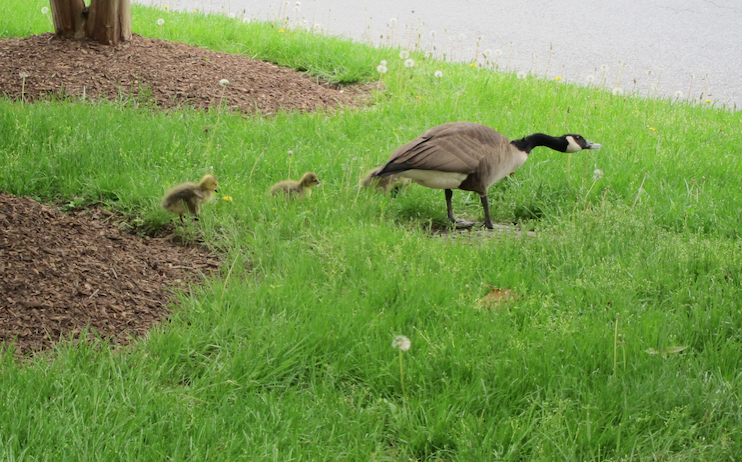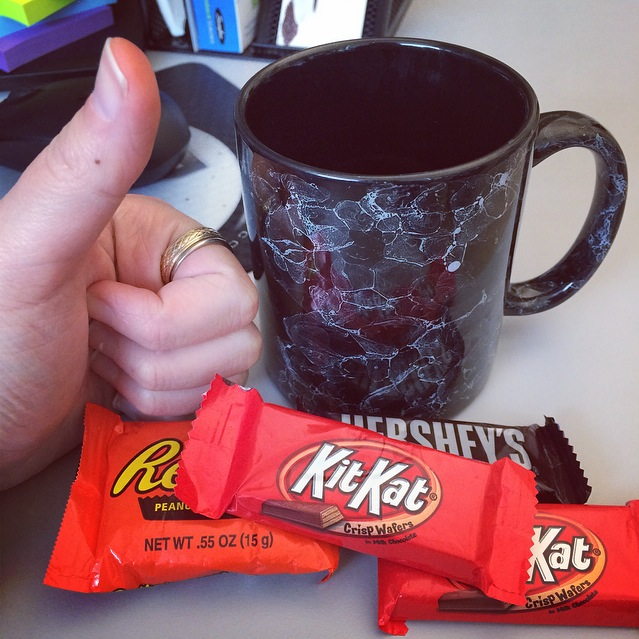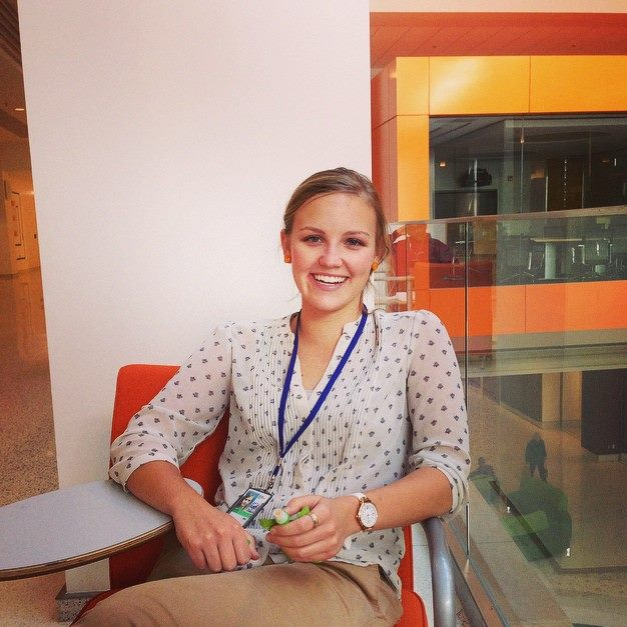What’s in a Name, Postbac IRTA?
We are all given a name by our parents, nicknames by friends, roles and titles in school and at work. In my life, I have been known as “Goose,” “that blonde girl over there,” and, most commonly, “Lucy.” Here at the NIH, my most important title is that of “postbac,” or, more endearingly, “fledgling scientist.” Although this title does not necessarily command awestruck wonder, it does indicate recent graduates’ integral roles in labs at the NIH. The road to success is long, yet well worn, and we all have our own starting points.

The namesake of one of my many monikers, grazing on the NIH Bethesda campus
For me, the Postbaccalaureate Intramural Research Training Award (Postbac IRTA) means being part of Dr. Catherine Bushnell’s lab in NCCIH, which is the Center our lab is a part of within the NIH. NCCIH stands for the National Center for Complementary and Integrative Health. The words “complementary” and “integrative” have varying connotations, so it is helpful to think of what they mean in our specific lab context. Essentially, “complementary” and “integrative” refer to treatments that have traditionally been outside the scope of what Western medicine includes, yet are now incorporated into modern medicine. This includes health practices such as massage, yoga, mindfulness, and acupuncture. Many forms of complementary medicine seek to alleviate pain conditions. However, the mechanisms of chronic pain are still largely unknown. Hence, our lab in NCCIH aims to clarify how chronic pain pathways work and how different approaches can change people’s experiences of chronic pain.
In our lab, I work closely with and am supervised by a postdoc, Dr. Lucie Low, on a variety of projects involving pain and related neural pathways, such as itch. Some of the projects we do involve techniques like brain imaging with fMRI, animal behavior, and immunohistochemistry. Working on a variety of projects like these with “Dr. Lucie” teaches me about very specific areas of science I would never have learned about in my undergraduate education, as well as how to improve my techniques, practices, and experimental designs.
Occasionally, my role here also involves encouraging my lab mates with chocolaty treats and shots of espresso when experiments don’t necessarily go as planned.

Keeping spirits and sugar levels up in our lab
Entering into the realm of scientific research as a postbac means many things: the beginning of a career in science or medicine, learning the tenacity required in scientific research, being a part of long term experiments, and many people in a lab coming together to make research happen. Being a postbac is a dynamic and exciting position to be in. The most exciting part is that it’s only the beginning.

Me, just outside our lab in building 35A
Related Blog Posts
This page was last updated on Wednesday, July 5, 2023
